What Are Sleep Disorders?
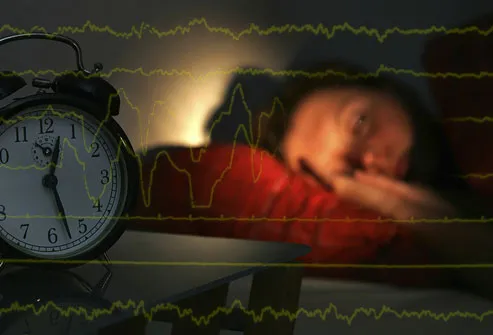 |
Read Also: ABCs of Allergy Skin Testing
The Dangers of Poor Sleep?
Lack of sleep can take a toll on nearly every aspect of daily life. Research has linked sleep deprivation to car accidents, relationship troubles, poor job performance, job-related injuries, memory problems, and mood disorders. Recent studies also suggest sleep disorders may contribute to heart disease, obesity, and diabetes.
Symptoms of Sleep Disorders
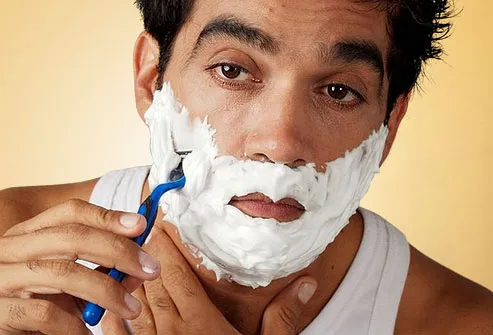 |
Symptoms vary depending on the type of sleep disorder but may include:
- Excessive sleepiness during the day
- Trouble falling asleep or staying asleep
- Snoring or brief pauses in breathing during sleep
- Urge to move your legs at rest or an uncomfortable feeling in the legs at night
The Sleep Cycle
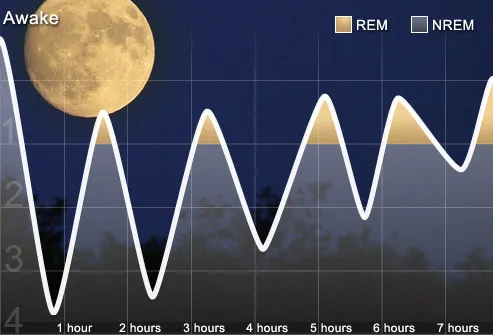 |
How Much Sleep Is Enough?
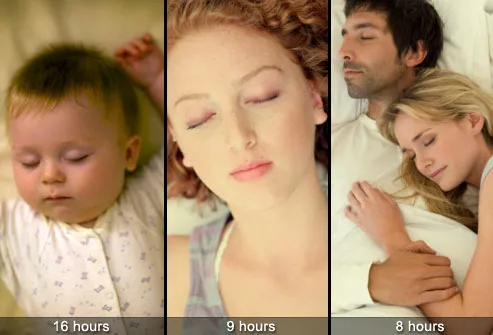 |
Sleep needs vary widely from person to person, but general guidelines are:
- 16 hours for infants
- 9 hours for teenagers
- 7-8 hours for adults
Keep in mind that some adults do fine with 5 hours of sleep and others need as many as 10 hours per night.
Insomnia
Most people have trouble sleeping once in awhile, but when the problem lingers night after night you may have insomnia. People with insomnia may lie awake for hours before falling asleep. They may wake up too early and be unable to drift off again. Or they may wake up repeatedly throughout the night. Insomnia is the most common sleep disorder in the U.S.
Read Also: ABCs of Allergy Skin Testing
Insomnia and Sleep Hygiene
In many cases, insomnia is related to poor sleep hygiene. This refers to bad habits that interfere with sleep. Examples include drinking coffee in the afternoon or evening, smoking or eating heavy foods before bed, going to bed at a different time each night, or falling asleep with the television or lights on.
Insomnia and Mental Health
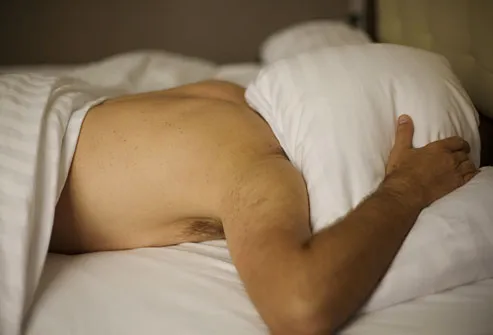 |
Mental health problems can lead to insomnia. These include depression, anxiety, and posttraumatic stress disorder. Unfortunately, some of the medications used to treat these conditions may also cause sleep problems. If you suspect your medication is disrupting your sleep, talk to your doctor about adjusting your treatment.
Insomnia and Medical Conditions
Insomnia is often related to medical problems, including:
- Arthritis
- Heartburn
- Chronic pain
- Asthma
- COPD
- Heart failure (due to breathing problems)
- Thyroid problems
- Neurological disorders, such as stroke, Alzheimer's or Parkinson's
Other Causes of Insomnia
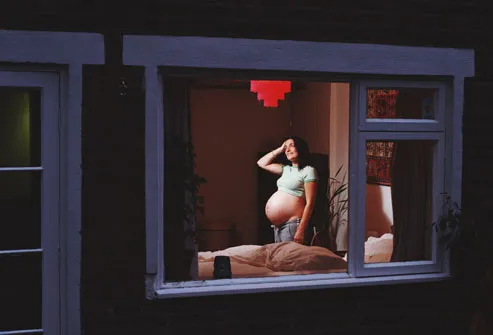 |
Read Also: ABCs of Allergy Skin Testing
Sleep Apnea
People with this sleep disorder have episodes when they stop breathing many times while they sleep. The breathing pauses last several seconds and trigger a switch from deep sleep to light sleep. These interruptions can lead to daytime sleepiness. Many people with sleep apnea don't know they have it. Snoring is a common warning sign, and a spouse may notice breathing pauses followed by a snort or gasp.
Risk Factors for Sleep Apnea
Sleep apnea is most common in people who are male, overweight, and over age 65. Hispanics, African-Americans, and Pacific Islanders also have a higher risk of developing the condition. While it is more common in adults, sleep apnea sometimes occurs in young children who have enlarged tonsils.
Restless Legs Syndrome
People with restless legs syndrome experience discomfort and the urge to move the legs at rest. The problem is usually at its worst during the evening and night. This can make it tough to fall asleep. Others experience twitching motions during sleep that may cause brief awakenings.
Narcolepsy
Narcolepsy causes extreme sleepiness during the day. People may find it hard to function without naps, despite spending enough time in bed at night. Other warning signs include:
Sleepwalking
People with this sleep problem can literally get up and walk while they are sleeping. The episodes occur during the deeper stages of NREM sleep, and the person may do a variety of activities without waking up. Sleepwalkers typically don't respond to questions and won't remember what they did once they wake up. Sleepwalking is most common in children but can last into adulthood.
Read Also: Spring Allergies
When to Call the Doctor
There are steps you can take to fight sleep disorders on your own, but some situations require medical attention. Call your doctor if you snore loudly or gasp during sleep, if you think a medical condition or medication is keeping you up at night, if you're tired all the time or if you fall asleep during daytime activities.
Sleep Diary
Charting your habits for 1-2 weeks can provide valuable information. Include:
Diagnosing Sleep Disorders
To diagnose a sleep disorder, your doctor will ask about your sleep habits and medical conditions. Next, you may be referred to a sleep clinic for testing. A polysomnogram, also called a sleep study, records brain activity, eye movements, and breathing while you sleep. These patterns can indicate a disorder like sleep apnea or a less common type. Research has identified more than 85 sleep problems, including sleep terrors, REM sleep behavior disorder, and sleep starts.
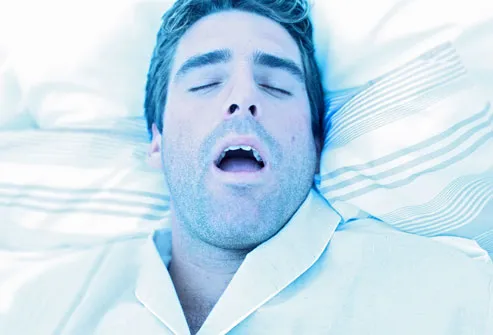 |
People with this sleep disorder have episodes when they stop breathing many times while they sleep. The breathing pauses last several seconds and trigger a switch from deep sleep to light sleep. These interruptions can lead to daytime sleepiness. Many people with sleep apnea don't know they have it. Snoring is a common warning sign, and a spouse may notice breathing pauses followed by a snort or gasp.
Risk Factors for Sleep Apnea
Sleep apnea is most common in people who are male, overweight, and over age 65. Hispanics, African-Americans, and Pacific Islanders also have a higher risk of developing the condition. While it is more common in adults, sleep apnea sometimes occurs in young children who have enlarged tonsils.
Restless Legs Syndrome
People with restless legs syndrome experience discomfort and the urge to move the legs at rest. The problem is usually at its worst during the evening and night. This can make it tough to fall asleep. Others experience twitching motions during sleep that may cause brief awakenings.
Narcolepsy
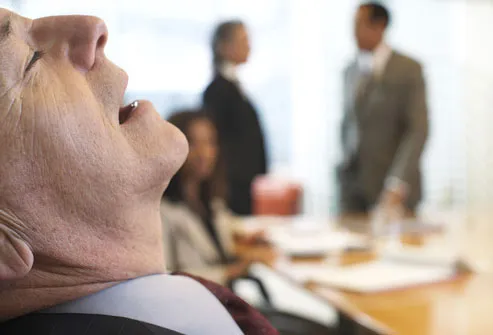 |
- Being unable to move when you first wake
- Losing muscle control with strong emotions
- Dreaming during naps
- Dream-like hallucinations as you fall asleep or wake up
Sleepwalking
People with this sleep problem can literally get up and walk while they are sleeping. The episodes occur during the deeper stages of NREM sleep, and the person may do a variety of activities without waking up. Sleepwalkers typically don't respond to questions and won't remember what they did once they wake up. Sleepwalking is most common in children but can last into adulthood.
Read Also: Spring Allergies
When to Call the Doctor
There are steps you can take to fight sleep disorders on your own, but some situations require medical attention. Call your doctor if you snore loudly or gasp during sleep, if you think a medical condition or medication is keeping you up at night, if you're tired all the time or if you fall asleep during daytime activities.
Sleep Diary
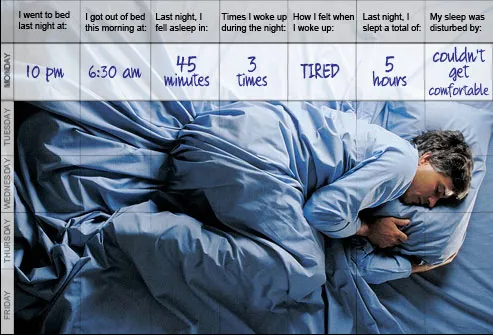 |
Charting your habits for 1-2 weeks can provide valuable information. Include:
- When you go to bed, fall asleep, and wake
- How long and well you slept
- Time awake during the night
- Caffeine or alcohol consumed and when
- What/when you ate and drank
- Emotion or stress
- Drugs or medications
Diagnosing Sleep Disorders
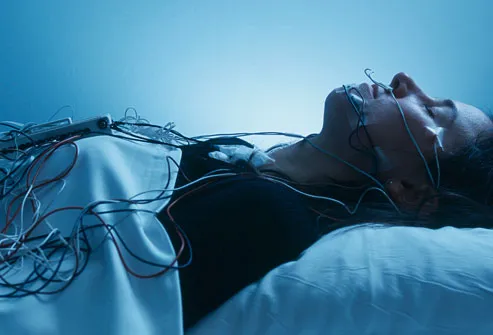 |
Treating Sleep Disorders
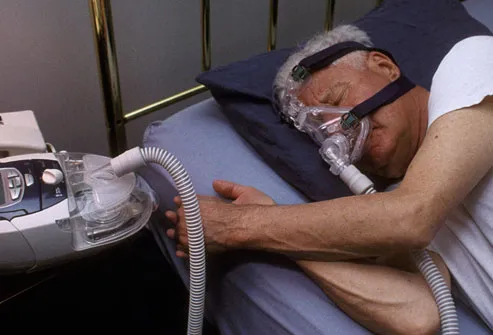 |
Cognitive-Behavioral Therapy
Several methods can ease sleep anxiety, which makes insomnia worse. Relaxation training and biofeedback help to calm your breathing, heart rate, muscles, and mood. Talk therapy can help replace bedtime worries with positive thinking, so your mind can settle down at night. Cognitive behavioral therapy (CBT) works as well as prescription drugs for many people with chronic insomnia.
Read Also: Spring Allergies
Sleep Hygiene: Exercise
 |
Adopting habits that promote sleep is known as good sleep hygiene. Regular exercise should be part of the plan, but the timing is important. Exercise in the late afternoon can make it easier to fall and stay asleep – just don't let it get too late. Exercise within a couple hours of bedtime can make it harder to fall asleep.
Sleep Hygiene: Problem Foods
Certain foods and drinks should be avoided in the 4-6 hours before bed:
- Caffeine, including coffee, tea, and soda
- Heavy or spicy foods
- Alcohol (While alcohol helps some people fall asleep, it leads to nighttime awakenings.)
Sleep Hygiene: Helpful Foods
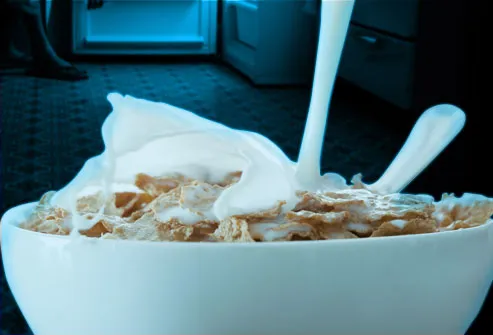 |
A light evening snack of complex carbs and protein can lead to better sleep. Cereal with milk or crackers and cheese fit the bill, but they should be eaten at least an hour before bed. Warm milk and chamomile tea raise body temperature and make many people feel sleepy.
Sleep Hygiene: Television
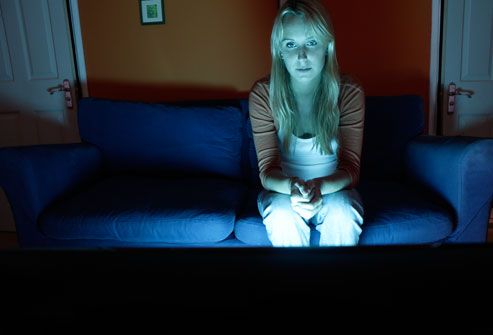 |
Late-night television may be part of your routine, but chances are it is not helping you sleep. Television engages the mind and can increase alertness, keeping you awake. Playing video games before bed or surfing the Internet may have the same effect. The National Sleep Foundation recommends removing televisions and computers from your bedroom altogether.
Sleep Hygiene: Bedtime Rituals
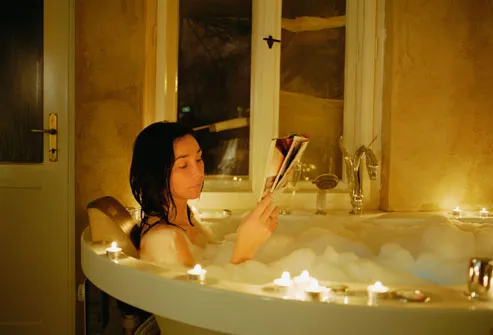 |

No comments:
Post a Comment